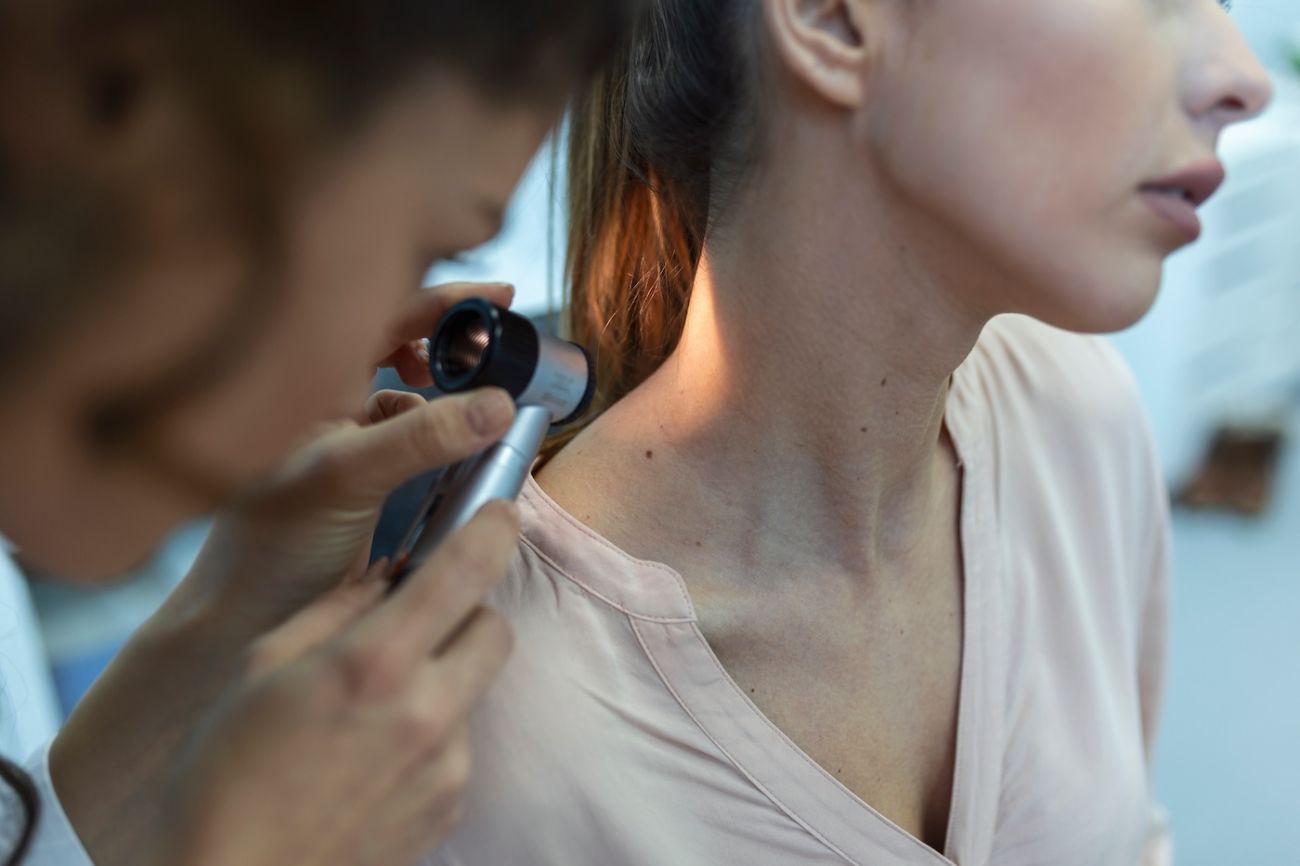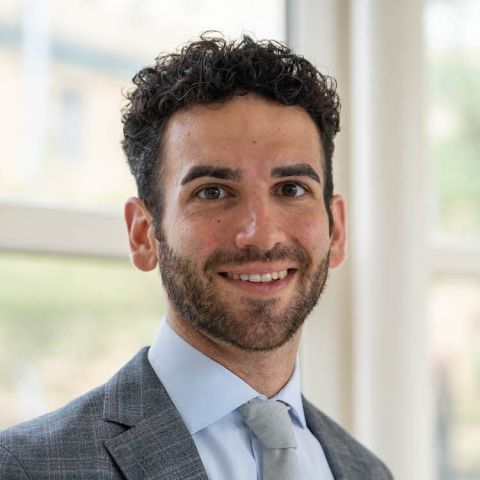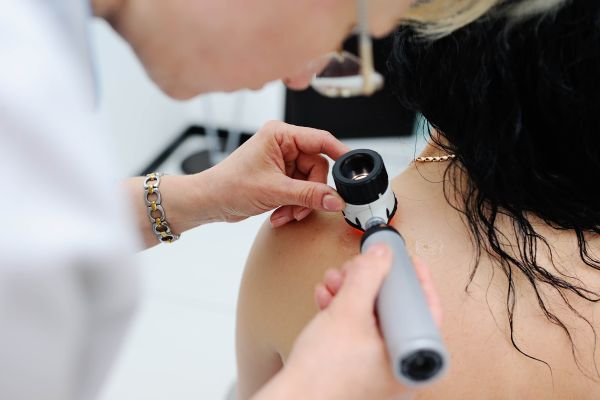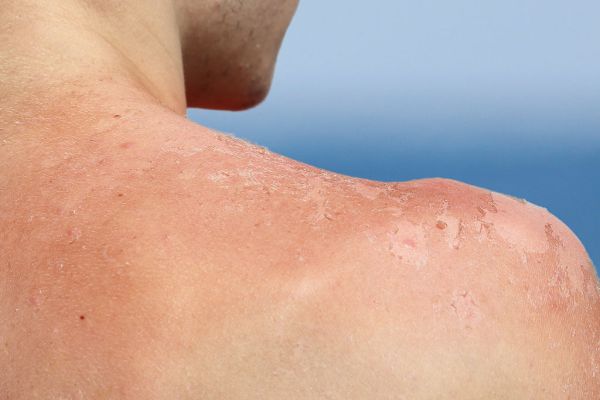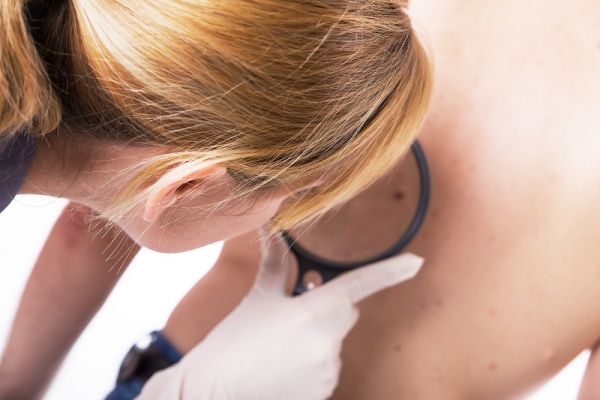This specialized surgery for skin cancer offers the highest cure rate and best cosmetic result.
Human skin is pretty amazing. It’s our largest organ, comprising roughly 16% of body mass; it’s waterproof, flexible, resilient and always active, regulating body temperature, producing melanin to help protect against ultraviolet (UV) radiation and making vitamin D which helps prevent many diseases.
But strong as skin is, a thinning ozone layer and the subsequent increasing levels of UV radiation that have occurred during the past 50 years has resulted in sharp increases in rates of skin cancer. The American Cancer Society estimates about 5.4 million basal and squamous cell skin cancers are diagnosed in the United States each year and melanoma, a less common but more serious skin cancer that spreads to other organs rapidly, is also on the rise.
What is Mohs surgery?
Mohs micrographic surgery is a skill-intensive surgical procedure that is proving to be the most effective treatment for skin cancer and it’s offered at Roswell Park Comprehensive Cancer Center and through the Roswell Park Care Network.
Skin cancers are like icebergs, with the tip of the tumor visible above the skin and the bulk of the cancer below, explains Roswell Park dermatologist and Mohs surgeon Daniel Bax, MD. Mohs surgery removes the tumor and immediately examines the margins under a microscope within the same office, while the patient waits, for any remaining cancer cells. If cancer cells are detected, another very thin layer of tissue is removed from that same location, sparing as much healthy tissue as possible. The procedure is repeated until no cancer cells remain. Following surgery, small wounds are allowed to heal naturally by a process known as second intention, where healing begins at the base and travels up toward the surface. Larger areas are closed with reconstructive techniques based on size and location of the wound.
Dr. Bax is one of three fellowship-trained Mohs surgeons at Roswell Park and sees patients at the Roswell Park Care Network locations in Depew and Lockport.
“The surgery is a slow and delicate process and can sometimes take several hours to complete, but the benefit to patients is that we are able to save more healthy skin while leaving the smallest possible scar," says Dr. Bax. “With skin cancer on the rise in WNY, these services are in high demand and there are very few specialists with the ability and resources to perform Mohs surgery.”
Roswell Park in your community
All Roswell Park Care Network locations provide you with access to the most advanced cancer treatment approaches in multiple, convenient locations.
Who should consider Mohs surgery?
“Most of the Mohs surgery we do is for patients who have cancers on their face. That’s the ‘high-end’ real estate in terms of someone's body,” says Dr. Bax. “For patients who are good candidates, Mohs surgery offers a lot of benefits. It offers the highest cure rate — up to 99% for a skin cancer that has not been treated before.”
Patients undergoing Mohs surgery have both cancer removal and reconstruction performed in a single-visit outpatient surgery, with local anesthesia instead of general anesthesia. The lab work assesses 100% of the cancer margin and is done all on-site.
Candidates for Mohs surgery include people with skin cancers that:
- Are located in areas where it is important to preserve as much normal, healthy tissue as possible for the maximal functional and cosmetic result
- Have come back after previous treatment
- Are large, aggressive or growing rapidly
- Do not have clearly defined edges
- Have had an organ transplant or have other immunosuppression
“Patients also benefit from Roswell Park’s multidisciplinary team that includes dermatologists, pathologists, surgical oncologists, radiation oncologists, and medical oncologists who come up with the best plan for that patient,” he says.
With skin cancers on the rise, Dr. Bax encourages people to have a dermatologist check out any new skin growth that is changing shape, growing, won’t heal or is bleeding, crusting, itching or flaking. “Much of skin cancer is caused by sun exposure that people got in their teens and twenties. Even if those people lived in a cave for the rest of their lives, they could still get these types of skin cancers,” he says. Dr. Bax recommends protecting skin with sunscreen, hats, long sleeves and avoiding direct sun between 10 a.m. and 2 p.m. to reduce UV exposure.
“We have the expertise to save lives with this precise type of surgery that is less painful, heals well, and most of all has a tremendous success rate in curing cancer. We help patients not only by removing their cancer but also by relieving their anxiety and fear. When a patient comes in, they’re typically nervous, but we are able to let them know by the end of their surgery that the cancer is gone and it won't bother them again. That's always a very gratifying experience.”
Mohs surgery at Roswell Park
Our surgeons are fellowship-trained by the American College of Mohs Surgery (ACMS) and use advanced technology for precise care in cosmetically sensitive areas.
